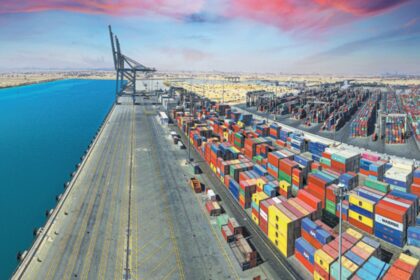Demographics is destiny. A historical truism is readily observed when delving into the past. Population densities and centres determined which polities rose and which assumed significance. Whether it be the crowded Gangetic plains of India, the sprawling settlements of northern China, or the mighty riverine cities of the Nile, each region’s demographic pull ensured that they remained a constant in historical memory and became coveted prizes amongst varying conquerors.
The Role of Military and Economic Power
Military and economic power often hinges on the demographic strength of a national polity, a simple but remarkably underappreciated aspect when analysing historical and geopolitical developments. More populous entities mean more taxes, more manpower to draw armies from, and a larger pool to pull intellectual, cultural, and economic talent from. This gives states greater depth to work with, often enabling them to outcompete with rival powers.
An illustrative case for this is something that might surprise people, namely that of the Ottoman Empire and rival European powers in the late 19th and 20th centuries. However, if one extrapolates demographic trends now to that bygone era, a person is understandably confused about how such a geographically expansive empire lost out to seemingly smaller European nations like the Balkan states and the Habsburg Empire. Yet the answer is in the statistics of that time. The Ottomans, by 1914, had a population of 18-25 million people. Meanwhile, the Habsburg Empire had a whopping 54 million, and the Russian Empire had even more. Other European countries also had relatively large populations when compared to the Ottomans. This meant that the Ottomans consistently faced larger armies, who had a larger revenue system to work and depend on, and ultimately one of the core reasons that forced out the Ottomans from Rumelia in the various Russo-Turkic, Balkan, and Austro-Turkic wars.

The Predatory Nature of Population-Rich Areas
Similarly, population-rich areas often herald predatory entities, peoples, and states who wish to control and plunder such regions because of the accumulated wealth generated by large, often sedentary societies. Thus we see resource-stressed nomadic people invading and conquering richer, more populated sedentary societies. A dynamic that continued to shape pre-modern geopolitics for thousands of years till modern times. Whether it be the Sassanid empire contending with the Kidarites and later Hephthalites, the Roman empire fighting off a whole host of barbarian invasions, the Islamicate world buckling under the Mongol-Turkic yolk, the Han Chinese being overrun by Machu armies, or the various Indo-Gangetic states collapsing under Central Asian pressure. Each such case meant statecraft was often geared towards fighting and managing these predatory nomads; the Roman Empire famously opened up its armies to barbarian recruitment while it diplomatically engaged the Hephthalites to leverage them against the Sassanids.
The Significance of Age Groups and Cultural Cohesion
Demographics, moreover, isn’t only about sheer numerics but also about how age groups are distributed and how various cultural units coalesce. A youthful population often abounds in virility and military strength; the young are indispensable in fighting wars, providing economic labour, and ensuring social continuity. Yet, they can also be a source of instability. Various conflicts in the Middle East and Africa are driven by a huge youth bulge who, lacking economic and social opportunities, turn to violence and revolutionary activity to satiate feelings of helplessness and correct perceived injustices.
Homogenous populations, as opposed to multicultural entities, also tend to be more stable, translating to better national cohesion and giving states a domestic cushion against potential outside influences. On the other hand, heterogeneous entities are often unstable due to competing cultural units, many of whom might be split between different states. This determines the geopolitical outlook of various states, especially in the modern world, where states seek to either unify or leverage such realities in their pursuit of influence. Afghanistan regularly intervenes in Pakistani affairs to unify the Pashtun Afghan people. Tuareg rebels reject state boundaries. Istanbul’s entire geopolitical outlook is preventing any potential Kurdish threat from developing on its border, invading neighbouring states of Syria and Iraq to prevent it. Paralysis and cross-border violence in the Congo, Ethiopia, and Nigeria due to dozens of rival religious and ethnic groups, with outside powers interfering to secure their own interests; M23 rebels in Congo backed by Tutsi-dominated Rwanda is a prime example of this. Amhara-Omoro militants are clashing and seeking support from neighbouring states in Ethiopia.

The Impact of Demographic Decline
Finally, demographic decline often determines the destiny and outlook of states and societies. The decimation of the East Roman populations due to the Justinian plagues, economic turmoil, and wars with Sassanids enabled the Islamic armies in the East and Germanic-Slavic tribes in the West to take over the declining centres of the Empire. Crashing birth rates in Japan and South Korea have led to profound concerns about the economy and reorientation in terms of geopolitical outlook; war must be avoided to prevent national suicide, and reliance on outside powers like the United States is a necessity. The slow demographic decline in Europe meant that it became dependent on the United States for protection and immigrants for economic labour, both having adverse effects on European societies, the former internationally and the latter triggering the return of the far-right. Wars, too, will be slower, gradual, and ironically bloody, as a lack of critical military manpower means decisive land operations are difficult, and the usage of drone and machine-based weaponry increases, as seen with the Russo-Ukrainian war.
Thus, a nation must recognise the population’s significance, lest demography sweep it away.
















